
Andrew Klavan is the author of more than 15 internationally bestselling novels, including Empire of Lies, True Crime, filmed by Clint Eastwood, and Don’t Say A Word, filmed starring Michael Douglas. He has been nominated for the Mystery Writers of America’s Edgar Award five times and has won twice.
Klavan’s latest novel is A Killer in the Wind.
In this mini-interview, Klavan gives Mystery Scene readers insight about his work and future plans.
A Killer in the Wind deals with repressed memory and hallucinations. What was your inspiration?
I began with an incident in my mind. A man has a dream of a woman—not a real woman, just a dream that obsesses him. Then one day, impossibly, against all logic, she washes up on the banks of a river. At first, he thinks she's dead. But then she looks at him and says, “They're coming after us!” That's where I started. So then I had to ask myself: Who's the guy? How is this situation possible? What happens next? I built the story backwards from there.
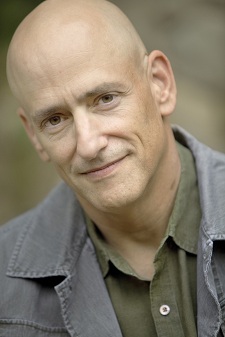 A Killer in the Wind is unflinching in its look at child trafficking, yet the novel is never lurid. What is the greatest challenge as a novelist in using sex trafficking as a background?
A Killer in the Wind is unflinching in its look at child trafficking, yet the novel is never lurid. What is the greatest challenge as a novelist in using sex trafficking as a background?
You hit it right on the head. I did not want to be lurid or in any way prurient. I wanted the reader's mind and heart with the victims and with the hero at every moment. There are a lot of writers and filmmakers who pride themselves on taking a sympathetic look at evil, bringing the audience into the mind of, say, a killer. Well, I'm sympathetic toward the soul that's lost to evil—that's a spiritual tragedy—but I think fiction perverts the moral universe when it leads you into the mind of a villian without giving you a full understanding, awareness and empathy for the victims of his crime.
Will we see more of Dan Champion, the hero of A Killer in the Wind?
I don't know. This is a unique story in his life, but it could be formative, you know, the story that makes him who he is. He was a great character to write so I wouldn't say no out of hand.
So many authors are now writing Y.A., and you did too with Crazy Dangerous. How different is the approach to writing Y.A. as opposed to writing thrillers?
I've always put a bit of what you might call method acting into writing my books. That is, I've learned to inhabit the minds of the characters I write and try to write them from the inside. I didn't find it difficult to inhabit a younger person's mind, and once you do that, the point of view sort of writes itself. I don't try to pull off any hipper-than-thou slang or anything, so once I had the young person's attitude, it wasn't any harder or easier than writing books for adults.
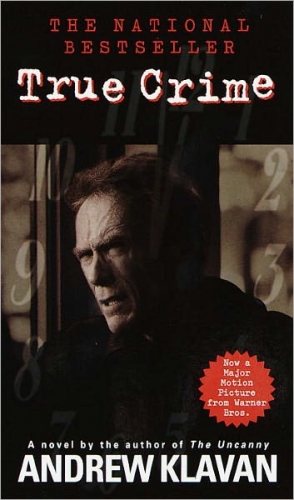
You’ve had success with your novels being turned into film, True Crime and Don’t Say a Word. What do you think of the films based on your novels?
I think they're pretty good. True Crime is well written and Clint Eastwood is an icon. Don't Say A Word is very exciting and was a big hit. I haven't yet seen a film of one of my books where I thought—yeah, that's it. That's what I wanted it to be. But maybe that never happens.
You also have written screenplays—the film A Shock to the System based on Simon Brett’s novel is a personal favorite—do you think about how a novel will play on screen when you are writing?
Never. They're two different forms. I mean, look, I learned a lot of my plotting technique from watching Hitchcock and other suspense movies as a kid, so there's a cinematic element to what I do. But books travel on the track laid down by the consciousness of the characters, movies travel on the track of events. The structure of a movie is just much more rigid, less expansive than a novel. If you wrote your novels like movies, you'd be cheating the reader out of some very good stuff.
You have adapted the trilogy of Dynamite Road, Shotgun Alley and Damnation Street into a screenplay titled Damnation Street. What’s the status?
It's been optioned by an outfit called Fox Hill Films and they're now trying to attach a filmmaker or a star. That's kind of the new Hollywood paradigm for pictures of this sort—I mean, stuff that isn't Spider-man or something huge like that. You put the picture together first, then you get a studio to buy in.
And why did you condense all three into one screenplay?
Well, because the trilogy is this sprawling story with lots of little subplots thrown in, but the central story starts in the first book and concludes in the last. There was no way to tell that central story without taking stuff from each book.
What is the best part of being a novelist?
I love what I do. Love telling stories. Love working with language. When it goes right, it's a weirdly spiritual thing—it orders your inner universe in a wonderfully harmonic way. And then there's that great thing where what happened to you in the writing happens to a reader in the reading, when a reader writes to you and says, I loved this, I couldn't put it down, I was up all night, one of my favorite books. That's kind of magical. Plus I get to work at home and my wife makes me lunch. I'm very fond of my wife.
What is the worst part of being a novelist?
When commercial considerations limit what you feel you can do. I'm not complaining about commerciality. I think art should have to make its own living. I don't believe in government grants and such—art should entertain people enough for them to pay for it. But I like to try new things, take different tacks, create something totally different than the last time and that just hurts you in the commercial world. If people like something, they want to see it again and again. I'm a natural experimenter. It goes against my grain to do the same thing twice.
What are you working on now?
Speaking of new stuff... I'm doing a new Y.A. series with a science fiction element. I've never really done that before and it's sort of mind blowing. Plus I have a ghost story film coming out and we're already starting the sequel. I'm busy.
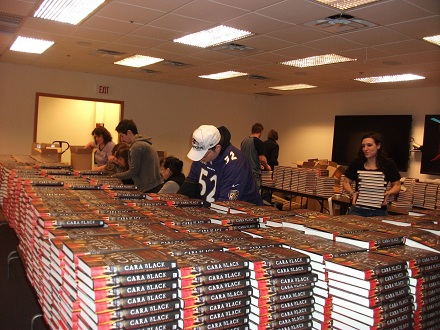
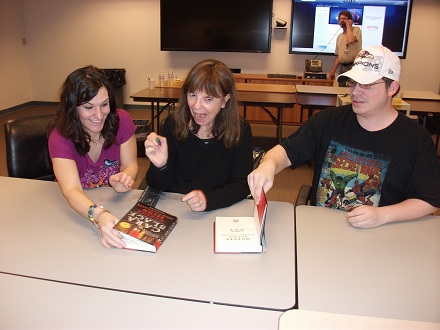
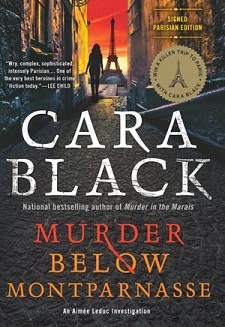

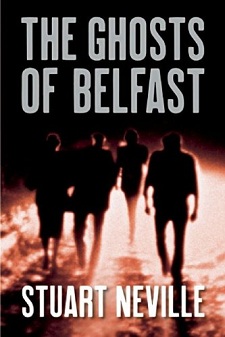


 A Killer in the Wind
A Killer in the Wind 

